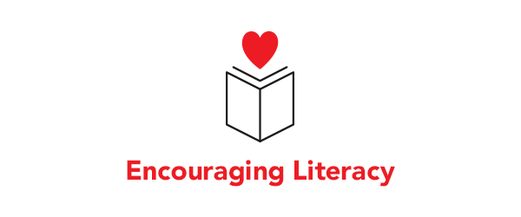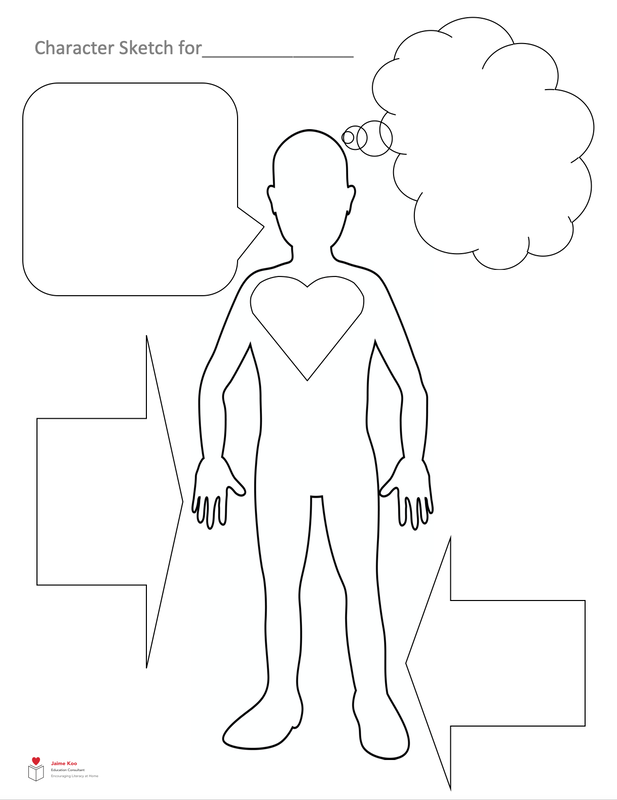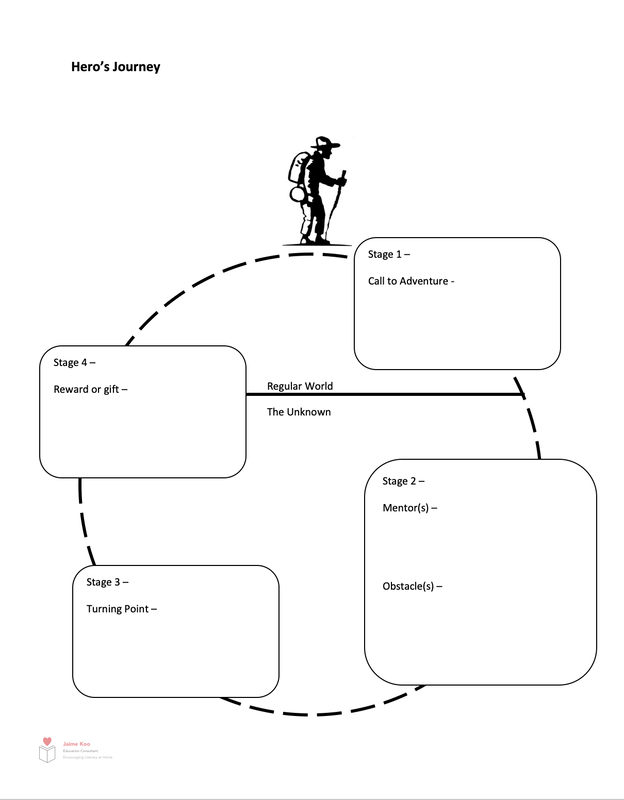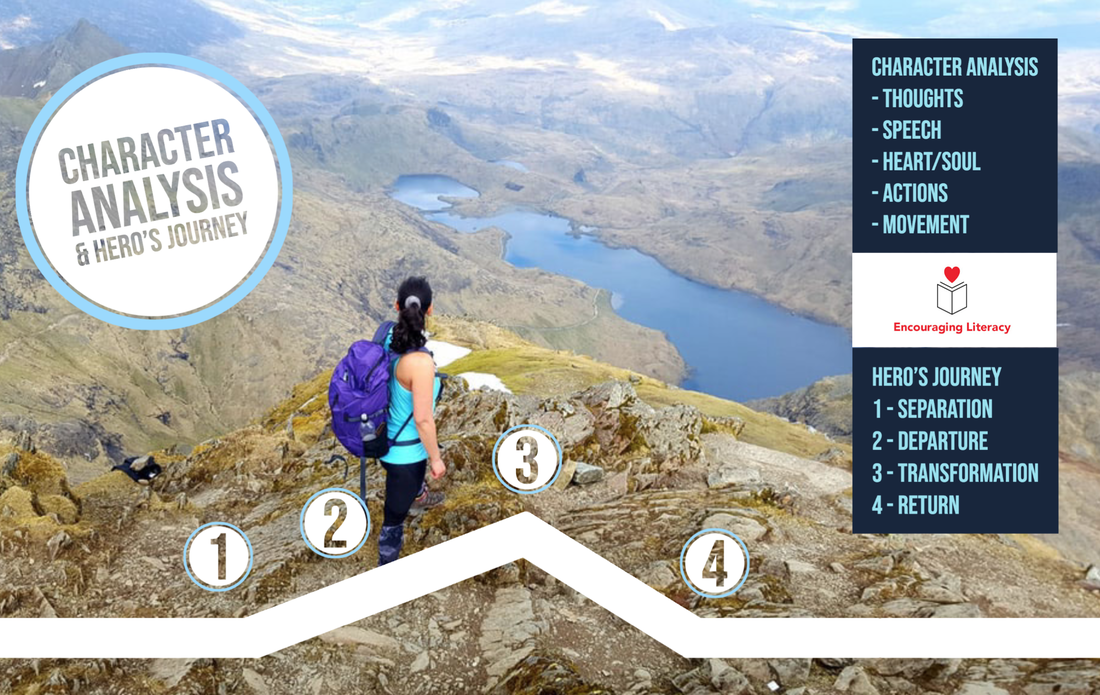Parent Guide:
Supporting Reading Comprehension for Secondary School Students
What You Need To Know
I get it – it’s impossible for parents to read every single chapter book their 6th – 12th grader is reading. There’s just not enough time! But here’s the thing - there are two universal concepts will help teenagers deepen their understanding of most narrative stories. By building on the basic plot structure map, help your kids (1) analyze character traits and (2) follow the character along the Hero’s Journey.
Click on the thumbnails below to download a PDF of the handouts (with notes) used in my parent workshops.
I get it – it’s impossible for parents to read every single chapter book their 6th – 12th grader is reading. There’s just not enough time! But here’s the thing - there are two universal concepts will help teenagers deepen their understanding of most narrative stories. By building on the basic plot structure map, help your kids (1) analyze character traits and (2) follow the character along the Hero’s Journey.
Click on the thumbnails below to download a PDF of the handouts (with notes) used in my parent workshops.
|
Character Analysis
Children should explore the internal and external traits of a character. As they analyze the areas of Speech, Thoughts, Heart & Soul, Hands, and Feet, your child should develop insights about the main or minor characters’ personality. Thoughts – Inner workings of the mind which may or may not be consisted with the character’s speech, could reveal a struggle Speech – Word choice, manner of speech, tone, sarcasm, eloquence, innocence, etc., which reveals a character’s attributes. Heart & Soul – Reveals the character’s motives, desires, and feelings. Hands – Represents action that a character takes. “Actions speak louder than words.” Feet – Represents a character’s movement, could be a literal or figurative journey |
|
Hero’s Journey
The Lord of the Rings, Alice in Wonderland, Harry Potter, Cinderella, Toy Story, Star Wars, The Chronicles of Narnia...what do all these familiar stories have in common? Yes! The Hero’s Journey! The hero’s journey is a classic story structure in which an unlikely hero or heroine embarks on a sudden and unexpected journey. The thumbnail at right shows a circular pattern, whereas the graphic below shows the hero's journey superimposed on a plot structure map, but the concept is the same: Stage 1 –The Separation – The hero is usually reluctant and has no choice but to go on the adventure. Stage 2 – The Departure – Along the way, the hero’s mental or physical strength and stamina are tested but receives help from mentors. Stage 3 – The Transformation – After an ultimate battle in which the hero is triumphant, the hero experiences a change that could be physical, mental, emotional, spiritual, etc. Stage 4 – The Return – The hero returns home with a gift or treasure that benefits humanity. |
Conversation Starters
An understanding of Character Analysis and the Hero’s Journey will give you much more leverage and substance on what you can talk to your kids about. Check out the open-ended conversation starters below. If it seems strange to jump into a conversation about character and hero’s journey in a book, see if watching a movie together will naturally bring up some of these discussions!
Parent Tip –
My favorite questions to ask are numbers 9 and 10 below. Not only do they give insight into the book your child is reading, it gives you the opportunity to affirm and validate your child too! When your child identifies with a positive character in the story, you can say, “I love that about you, too!” or when they tell you if the agree or disagree with the author’s view, you can say, “I like how you think, and I agree with you.” Take every opportunity to connect on a personal level!
1. How does the character feel about his/her situation?
2. What are the different characters in the story concerned about?
3. What do you think is the most important idea in what you have just read?
4. What are some of the words the author uses that give you insight into a character’s personality?
5. What particular words that the author used gave you a vivid picture of the setting?
6. What is the format of this book? Is it effective? Why or why not?
7. Why do you think the story ended the way it did?
8. If you were the main character (or minor character), what would you do differently and why?
9. Which character in the book are you most like or most unlike? Explain.
10. How does the author view life? Do you agree or disagree with the author’s view? Why?
For more conversation starters, check out this article from Edutopia..
An understanding of Character Analysis and the Hero’s Journey will give you much more leverage and substance on what you can talk to your kids about. Check out the open-ended conversation starters below. If it seems strange to jump into a conversation about character and hero’s journey in a book, see if watching a movie together will naturally bring up some of these discussions!
Parent Tip –
My favorite questions to ask are numbers 9 and 10 below. Not only do they give insight into the book your child is reading, it gives you the opportunity to affirm and validate your child too! When your child identifies with a positive character in the story, you can say, “I love that about you, too!” or when they tell you if the agree or disagree with the author’s view, you can say, “I like how you think, and I agree with you.” Take every opportunity to connect on a personal level!
1. How does the character feel about his/her situation?
2. What are the different characters in the story concerned about?
3. What do you think is the most important idea in what you have just read?
4. What are some of the words the author uses that give you insight into a character’s personality?
5. What particular words that the author used gave you a vivid picture of the setting?
6. What is the format of this book? Is it effective? Why or why not?
7. Why do you think the story ended the way it did?
8. If you were the main character (or minor character), what would you do differently and why?
9. Which character in the book are you most like or most unlike? Explain.
10. How does the author view life? Do you agree or disagree with the author’s view? Why?
For more conversation starters, check out this article from Edutopia..
Services |
Company |
© COPYRIGHT 2015. ALL RIGHTS RESERVED.
|



